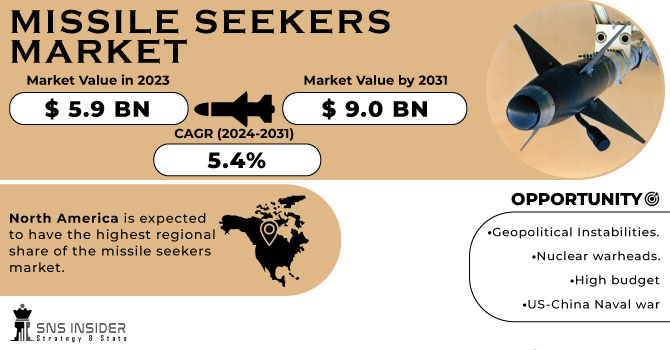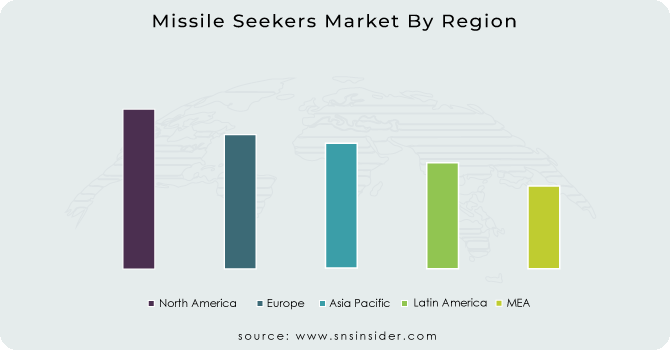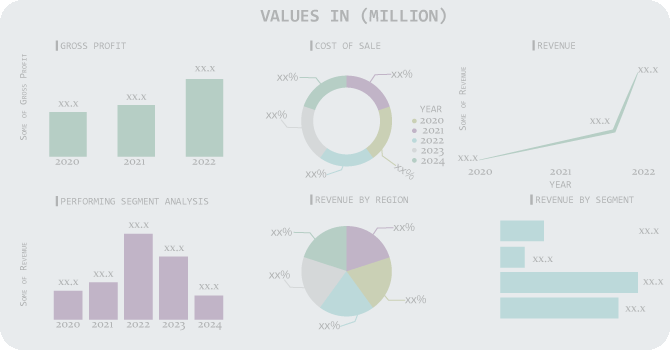Missile Seekers Market Report Scope & Overview:
The Missile Seekers Market size was valued at USD 5.9 billion in 2023 and is expected to reach USD 9.0 billion by 2031 with a growing CAGR of 5.4% over the forecast period 2024-2031.
The market for archers will be largely driven by the changing wars in the predicted year. Advances in technology have led to the development of new and improved defense systems, including air defense systems and missile launchers. The changing world situation of war has led to the acquisition of advanced missiles and defense capabilities by international military forces. These soldiers are increasingly engaging in low-level wars.

To get more information on Missile Seekers Market - Request Free Sample Report
Advanced missile defense skills help countries protect themselves from rocket and missile attacks. For example, Israel’s Iron Dome Israeli air defense system has blocked more than 2,550 missiles and mudslides with a success rate of more than 91%. The missile detector in such a system plays a very important role in ensuring that the arrows fired by the defense system hit the targets accurately. This has led to the development of highly advanced wind protection systems, which use ground-based and arrow-fired missiles, with a success rate of over 91%. Thus, the changing nature of the war has led to an increase in the demand for highly sought-after archers from around the world.
MARKET DYNAMICS
KEY DRIVERS
-
Geopolitical Instabilities.
-
Nuclear warheads.
-
High budget
-
US-China Naval war
RESTRAINTS
-
This is included in the final report.
OPPORTUNITIES
-
Depleting stock
-
High demand for missiles.
CHALLENGES
-
Regulations
-
Impacting civilian
-
Causes Higher impact
THE IMPACT OF COVID-19
COVID-19 is an unexpected global public health disaster that has impacted nearly every business, and the long-term impacts are expected to have an influence industry growth throughout the projection period. Our continuing study expands our research methodology to include fundamental COVID-19 concerns and relevant next steps. The research provides insights on COVID-19 by taking into account changes in consumer behavior and demand, purchasing patterns, supply chain re-routing, the dynamics of contemporary market forces, and substantial government initiatives. The revised report contains insights, analysis, estimates, and predictions based on the COVID-19 market effect.
COMPETITIVE LANDSCAPE
With the existence of some major, well-established competitors, competition in the missile seeker industry is fierce. Heavy expenditures on R&D and new technology are a crucial development strategy for manufacturers in the missile seekers industry.
Large players are collaborating with research groups and government agencies to gain insights into necessary developments. Detailed conversations and presentations with the defense department aid in understanding how to increase the effect of missiles.
BAE Systems, Leonardo S.p.A, Raytheon Technologies, Northrop Grumman Corporation, Boeing, Safran Group, and Thales are among the leading firms in the missile seekers industry.
KEY MARKET SEGMENTATION
By Missile Type
-
Interceptor Missile
-
Ballistic Missile
-
Cruise Missile
-
Conventional Missile
By Technology
-
Active Radar
-
Semi-active Radar
-
Passive Radar
-
Infrared
-
Laser
-
Multi-mode
By Launch Mode
-
Surface-to-Surface
-
Surface-to-Air
-
Air-to-Surface
REGIONAL ANALYSIS
During the forecast period, North America is expected to have the highest regional share of the missile seekers market. The missile seekers market in North America is mostly divided between two countries: the United States and Canada. The United States is a market leader in the missile seeker business. Raytheon Technologies, Northrop Grumman Corporation, and Analog Devices, as well as small-scale private enterprises like Wxcelitas Technologies Ltd., Janos Tech, and MAROTTA controls, have their headquarters in the United States. The aforementioned big firms are constantly investing in the R&D of new and better missile seeker systems.

Need any customization research on Missile Seekers Market - Enquiry Now
REGIONAL COVERAGE:
North America
-
USA
-
Canada
-
Mexico
Europe
-
Germany
-
UK
-
France
-
Italy
-
Spain
-
The Netherlands
-
Rest of Europe
Asia-Pacific
-
Japan
-
South Korea
-
China
-
India
-
Australia
-
Rest of Asia-Pacific
The Middle East & Africa
-
Israel
-
UAE
-
South Africa
-
Rest of Middle East & Africa
Latin America
-
Brazil
-
Argentina
-
Rest of Latin America
KEY PLAYERS
The Key Players are BAE Systems, Leonardo S.p.A., Raytheon Technologies, Thales, Safran Group, Boeing, and Northrop Grumman Corporation & Other Players.
Raytheon Technologies-Company Financial Analysis

| Report Attributes | Details |
|---|---|
| Market Size in 2023 | US$ 5.9 Billion |
| Market Size by 2031 | US$ 9.0 Billion |
| CAGR | CAGR of 5.4% From 2024 to 2031 |
| Base Year | 2023 |
| Forecast Period | 2024-2031 |
| Historical Data | 2020-2022 |
| Report Scope & Coverage | Market Size, Segments Analysis, Competitive Landscape, Regional Analysis, DROC & SWOT Analysis, Forecast Outlook |
| Key Segments | • By Technology (Active Radar, Semi-active Radar, Passive Radar, Infrared, Laser, Multi-mode) • By Missile Type (Interceptor, Ballistic, Cruise, Conventional) • By Launch Mode |
| Regional Analysis/Coverage | North America (USA, Canada, Mexico), Europe (Germany, UK, France, Italy, Spain, Netherlands, Rest of Europe), Asia-Pacific (Japan, South Korea, China, India, Australia, Rest of Asia-Pacific), The Middle East & Africa (Israel, UAE, South Africa, Rest of Middle East & Africa), Latin America (Brazil, Argentina, Rest of Latin America) |
| Company Profiles | Established players in the market include BAE Systems, Leonardo S.p.A., Raytheon Technologies, Thales, Safran Group, Boeing, and Northrop Grumman Corporation. |
| DRIVERS | • Geopolitical Instabilities. • Nuclear warheads. • High budget |
| RESTRAINTS | • This is included in the final report. |

